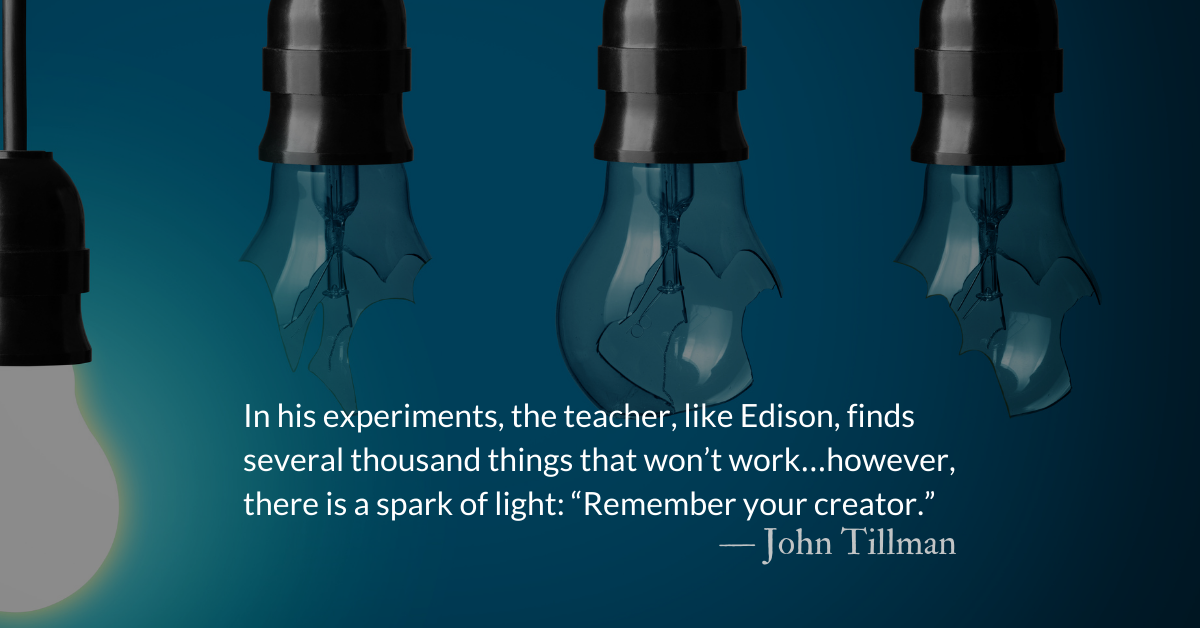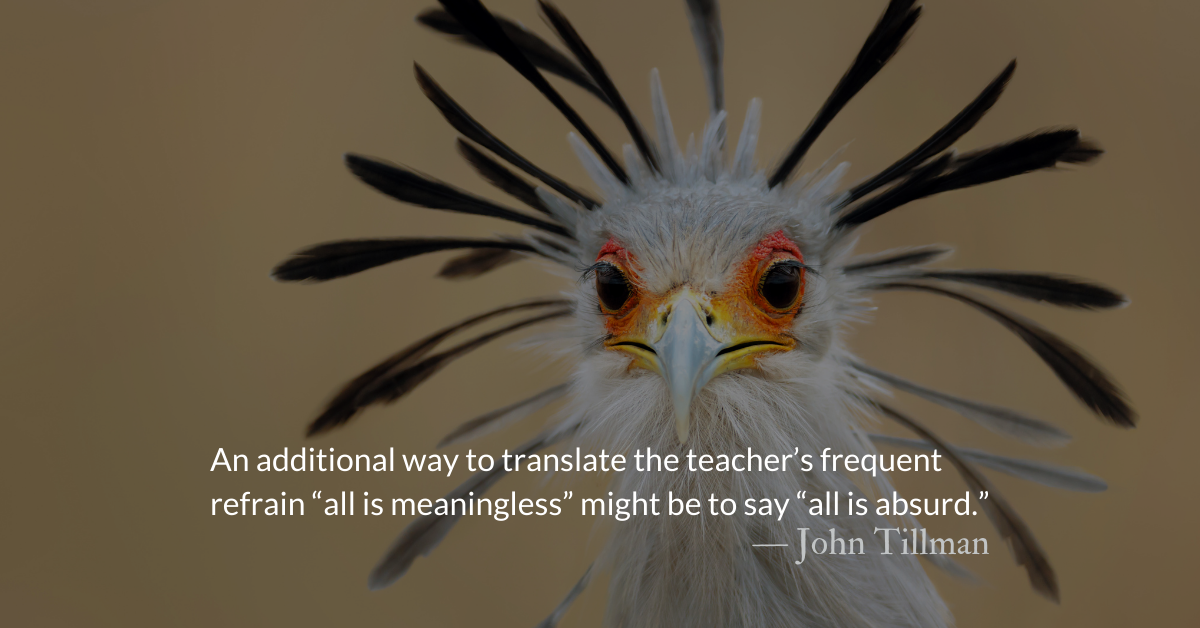Scripture Focus: Ecclesiastes 12.6-8
6 Remember him—before the silver cord is severed,
and the golden bowl is broken;
before the pitcher is shattered at the spring,
and the wheel broken at the well,
7 and the dust returns to the ground it came from,
and the spirit returns to God who gave it.
8 “Meaningless! Meaningless!” says the Teacher. j
“Everything is meaningless!”
Reflection: Meaning in Remembrance
By John Tillman
After many failures on a new kind of electric battery, an associate of Thomas Edison expressed dismay at having no results for their labor. Edison shot back, “We have plenty of results. We know several thousand things that won’t work.” Edison is known to have expressed similar sentiments throughout his career.
Ecclesiastes, in a way, is a journal of failed moral experiments and reads as if it was written over a long period, perhaps a lifetime. It begins, not with idealism but with a jaded, youthful cynicism. The teacher sets out, armed with wisdom, to solve the meaninglessness he sees. He makes himself both moral scientist and test subject. (Ecclesiastes 2.1)
In his experiments, the teacher of Ecclesiastes, like Edison, finds several thousand things that won’t work. Here at the end, we find the teacher still struggling with the problem he set out to solve. He never comes to a conclusion that fully satisfies him, however, there is a spark of light: “Remember your creator,” he says. “Remember your creator.”
Remembering is not just the recall of facts. Remembering is powerful. God often commanded the people to “remember.” Remembering can be an experience in which all the emotions, and even senses and sensations, participate. Passover was one of those times when remembering involved all the senses. The point was not for Israel to remember the facts of what God did, but to remember God’s identity and their own.
At the last Passover Jesus observed, he reoriented the meal around himself, saying, “do this in remembrance of me.” Then on the cross, a few hours later, the thief asked Jesus to “remember” him.
The light bulb moment of Ecclesiastes never quite comes, but the spark of hope lies in doing what God has already commanded us to do—remember him.
The aged teacher’s exquisite closing poem pays poignant tribute to the realities of life and death and the importance of remembering God in youth, not just in old age.
Remembering is a lifelong task and not merely a mental exercise. If we are to remember as Jesus commands, our remembrances must be both acts of testimony and demonstration. How do our remembrances testify and demonstrate God’s identity and our identity in him?
Let us remember Jesus. Remember him to ourselves. Remember him to our family and friends. Remember him to our community.
In this remembrance we find meaning.
Divine Hours Prayer: The Greeting
My mouth shall recount your mighty acts and saving deeds all day long; though I cannot know the number of them. — Psalm 71.15
– From The Divine Hours: Prayers for Springtime by Phyllis Tickle.
Today’s Readings
Ecclesiastes 12 (Listen – 2:38)
Psalm 119:1-24 (Listen – 15:14)
Read more about Over the Brink of Success
It is uncomfortable to hear the success we long for is pointless, but it’s healthy.
Read more about Forward-Looking Remembering
Remembering is not “living in the past” or “longing for the good ole days,” instead it informs our hope for a future that God has for us.











